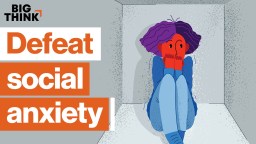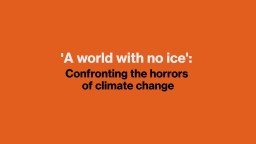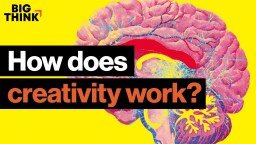fear
Next time you listen to scary campfire stories, sit with a friend who has aphantasia.
There is no success without failure, but the fear of the latter is what’s really keeping you from achieving your goals.
▸
15 min
—
with
For democracy to prosper in the long term, we need more people to reach higher levels of education.
Did America’s collective mental health get worse (and then better) after the first COVID-19 lockdown?
A new study shows that beauty standards affect whether or not accusers are believed.
First, recognize that our genes make us worrywarts.
Getting plenty of sleep just became even more important.
A recent NIHR report found that students with previously low connectedness scores saw improvement in well-being and eased anxiety.
A study looks at the ingredients of a good scare.
A new survey also found that women executives believe imposter syndrome to be common among women in corporate America.
Andrew Wakefield turned away from science and to the tabloids to spread his fabricated data.
Positive, romantic thoughts could produce positive, romantic outcomes while dating.
Are you mentally exhausted? Here’s how to tell (and what to do about it).
Innovators don’t ignore risk; they are just better able to analyze it in uncertain situations.
Examining the differences between anxiety and COVID-19 symptoms and discussing the possibility of IAD (illness anxiety disorder) during a global pandemic.
Can we affirm everything in life, the beauty and the suffering? Nietzsche says yes.
More people are looking up panic and anxiety attacks in quarantine.
Some anxiety is natural, but it doesn’t have to control your life.
▸
11 min
—
with
Several experts have weighed in on our sometimes morbid curiosity and fascination with true crime.
The complacent majority needs to step up and call for action on climate change.
▸
22 min
—
with
Human brains evolved for creativity. We just have to learn how to access it.
▸
12 min
—
with
Some of the world’s top minds weigh in on one of the most divisive questions in tech.
▸
17 min
—
with
Fighting materialized, virtual monsters can be cathartic in stressful and precarious times.
By delving into the mysteries of the Universe, colliders have entered the Zeitgeist and tapped the wonders and fears of our age.
A 2017 University of Wisconsin-Madison study was the first of it’s kind to show structural differences in the psychopathic brain.
Three scientists examine three dimensions of psychopathy: neurological, social, and criminal.
▸
12 min
—
with
Reveri Health has launched a new stress-relief self-hypnosis program through Amazon Alexa to help combat the anxiety of COVID-19.
Sometimes not looking forward to something helps you get it done.
Ever want to move forward but find you’re in your own way?





























